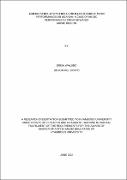Adjudication and national primary schools’ music performances in Uganda: a case of music Performances from Nkwanzi music region
Abstract
The purpose of this study was to evaluate the adjudication of music performances at the Uganda National Primary Schools’ Performing Arts (UNPSPA) festival, with a case of national music performances from Nkwanzi music Region. From the onset, this study was triggered by the choir trainers’ increasing voices of dissent against adjudication results. The study objectives were; to investigate how adjudication of music performances at the UNPSPA festival is done, to assess the competency of adjudicators of music performances at the UNPSPA festival, and to examine extra-musical and non-musical factors that influence adjudication of music performances at the UNPSPA festival.
This study was conducted in four districts of Jinja, Kamuli, Kaliro and Luuka; an area which had a high number of increasing voices of dissent, and also from where two of the four choir trainers who were banned from the 2017-2018 festivals, hail. The study was hinged on Dworkin’s theory of adjudication (1980) and a Mixed Methods research design was used, involving both qualitative and quantitative descriptive approaches. The target population included members of the UNPSPA festival organising committee, adjudicators of national music performances for 2015-2019 festivals, and choir trainers whose choirs reached the national festival within 2015-2019. A sample of sixty-four (64) respondents was selected from a population of sixty-nine (69) by purposive sampling strategy. The instruments used to collect data were questionnaires, interview guides and document analysis checklist. Key findings from the study were as follows;
Concerning how adjudication is done, the study disclosed that there was no association of adjudicators for quality assurance and disciplinary control, hence no systematic procedure for selecting, approval, appointing, training and mentoring of adjudicators at the UNPSPA festival. Adjudicators are theoretically inducted prior to adjudication, Adjudication commentary was flat because it never gave full direction to the choirs, thus disabling its educational importance. Also, key stakeholders had no opportunity of evaluating adjudicators and/or the adjudication process.
About competency of adjudicators, it was found out that adjudicator’s knowledge of theme, experience in music and regular training, boost their efficiency. Also, the study unveiled that the quality of adjudicators at this festival is low. Further, about factors that affect adjudication, it was discovered that favouritism, adjudicator’s emotional state, external influence, language barrier, audience reaction and order of programme, influence the adjudicators. The study recommended that adjudicators should form an association to systematise the running of this festival; there should be regular and practical training of adjudicators through workshops, seminars and internships so as to uphold their competency; adjudicators should be given adjudication permits after evaluation by key stake holders. Also, each adjudicator in a panel should come up with individual commentary and ratings before conferring, to mitigate external influence. These recommendations in combination, will help to improve on adjudication at this festival, thus curtailing the voices of dissent against adjudication results.

